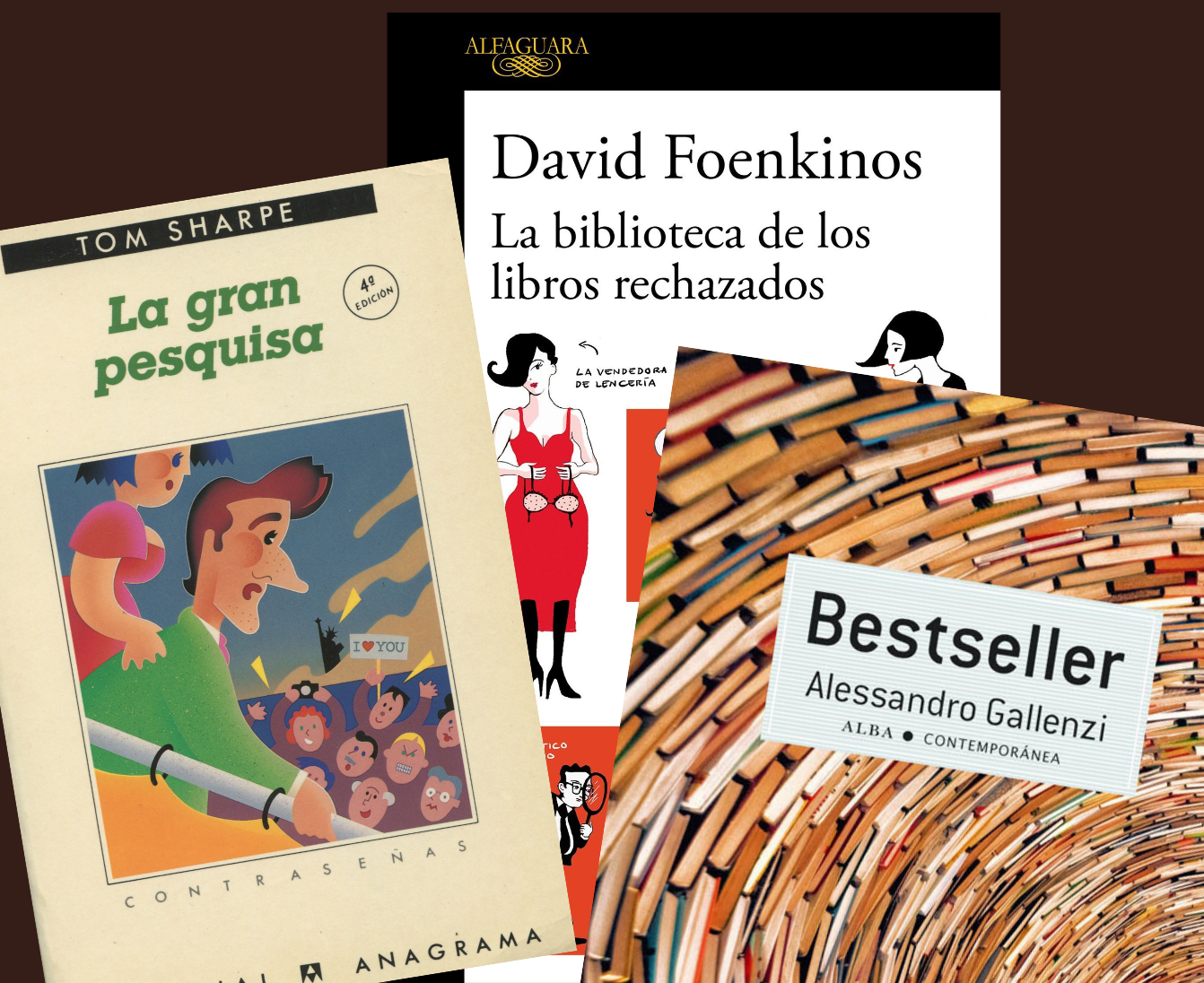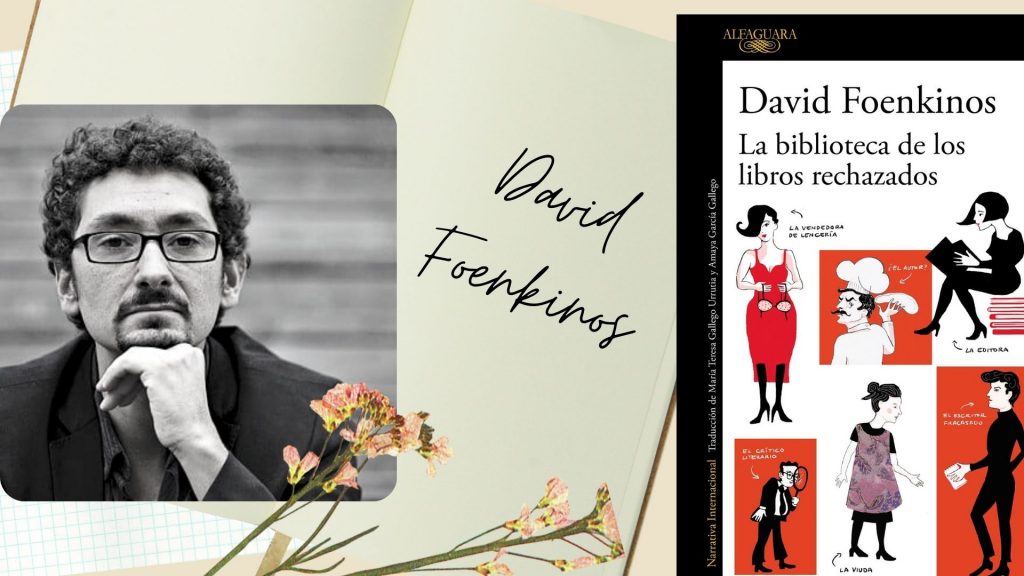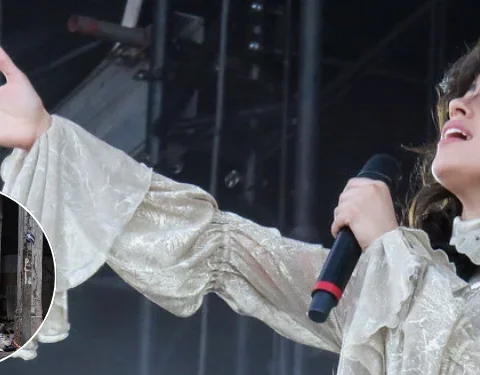Some time ago, someone, learning that I write, asked me: why don’t you publish? I was left with a joke, as they say, and I came out with a euphemism that failed to convince the curious and tricky interlocutor: Publishing is not easy. Luckily he didn’t investigate much, and at that moment the three novels I’ve read —so far— on the publishing world came to mind. Contrary to what one might believe, the three
The books are not at all pamphleteers nor do they intersect with the essay, they are, rather, novels of pure humor, after all one of the wisest things there is. I always tell my friends and acquaintances: you have to laugh at life because it laughs at us all the time. Sign up for that one and shoot forward.
“Everyone can love to read if the condition of having the right novel in their hands is met, the one that we are going to like, the one that is going to tell us something and that we will not be able to put down”, wrote David Foenkinos in his novel The Library of Rejected Books. And just in case you are looking to read something refreshing, that makes you laugh and think, I propose three novels that surely you will not be able to read with a face pokerloaded with situations
hilarious, wacky, tragicomic, sarcastic and very realistic—or not.
the great investigationby Tom Sharpe
It is a story full of bizarre situations, many unexpected twists, cynicism and a level of impudence that will keep you hooked on reading. Its author, Tom Sharpe, is considered The King of Corrosive Humor. A few months ago I bought a whole collection of his novels published by Anagrama, a treasure, really.
the great investigation it is actually the set of quests that the different characters have; Frensci is a successful publisher who, following a libel suit, receives a manuscript that he anticipates will be successful, but on the condition that it be published anonymously.
On the other hand, Piper is a young writer who longs to be published and lives for that, although Frencsi out of pity does not confess that the novel he has been working on for so many years is a failure.
Piper is encased in the authorship of the novel that she has not written, and from there the commercial entanglements begin with Sonia, the assistant editor and co-star of the scandals, blackmails and threats in a circus with demonstrations, blood, trials, persecutions, loves poachers, fires, explosions, police, religious fanatics, this novel has it all!
Then Baby enters, a rich woman full of plastic surgeries who changes the course even from the air, and then one last unexpected twist to conclude by giving a little participation to karma —to call it in some way— and leave you speechless. Novel to laugh and meditate, because with so much entanglement you want to know what is going to end so much nonsense that, in a brilliant way, tells us about that business of the book that in
countries of the first world can be a millionaire and full of ironies and skepticism:
After all, in a thousand years, who the hell would care who wrote Great Expectations? Only a few scholars who could still read English.”
Tom Sharpe is —although he has already passed away— a master of entanglement, fine, elegant, cultured and crude humor as well. He created cinematic dialogue and visuals, and here is an example of his enviable ingenuity in moving his characters from one situation to another, from one country to another, from land to sea, and from good to evil. This is, without a doubt, a great novel.
The Library of Rejected Booksby David Foenkinos
A humorous novel that, through sarcasm, captures the reality of the publishing world with its ups and downs. In Brittany, France, Jean-Pierre Gourve founded the Library of Rejected Books, inspired by an American from Vancouver. They tell you about Magali, the secretary, then they tell you about Delphine Despero, a Breton who works in Paris as an editor. Delphine discovers a supposed literary promise, and with him she also begins a relationship.
From the trip to visit Brittany, Delphine and her writer boyfriend return to Paris with the discovery of a love novel full of sensitivity and beauty, with certain links to Russian culture and that tells the end of a love along with the sufferings of Pushkin’s death, allegedly written by the former owner of a local pizzeria. That is when the adventure of this novel really begins, but was the pizza man really the
Author?
The unusual success of the story leads to finding yet another book in the attic, they will create a whole campaign that will fill the skeptics and will confuse things both for the publisher and their relationship in decline, the widow of the pizza maker-author, the daughter frustrated from that marriage, the one who runs the library and Jean-Michel Rouche, an editorialist critic who enters in the middle of the novel to stir things up, since he seeks to deny the author. “Masterpieces are frequently accompanied by a novel of the novel.”
This is a novel about what we also are and don’t show —second intentions—, about appearances, and about the search for the essence of things beyond the mere observation of forms. Written in that French existentialist style, with humor that ranges from the sublime to the ridiculous, with great elegance and a fair amount of curiosities and literary suggestions, this novel entertains as well as enlightens. It has its detective and dramatic-romantic touches but in general it is a humorous novel. “Readers always find themselves, one way or another, in a book.”
Best-sellerby Alessandro Gallenzi
«(…) You can go from not being published regardless of how good you are to being published regardless of how bad you are (…) It no longer has to do with books or authors, but with psychology and finances…” Novel about the world of English publishers, the people who write and want to be published, and the people who didn’t write but are opportunists, then plagiarize and lie and get published for commercial reasons.
It is a scathing critique of that world of literary business. He manages to engage from the beginning and knows how to give unexpected plot twists, in such a way that you don’t see what will happen coming, and the ending is the most realistic and surprising. The publishing world is complicated is an understatement, if we take into account everything that is condemned and recondemned in this story that exposes the tricks of the publishing business, the one that puts money before talent and is as much a victim of fashion as the most shallow human creature: “What is it to be an editor? Is it a profession, a trade, a vocation or a gentlemanly occupation? Well, certainly not the latter anymore. (…) ladies and gentlemen. It is now just one more downgraded branch of global corporate business, with a few honorable exceptions.” Impossible not to continue citing the author.
The publishing sector is described in Best Seller as dirty, tricky, ruthless, cold, superficial and even uneducated, giving way to those pure writers towards a department of losers and outcasts. Despite having certain commonplaces like “dark as a pitchfork” and “red as a tomato”, which I don’t know if they are a thing of the translation or the author, the story manages to captivate. It is easy to read due to its many dialogues, something that is very common in Anglo-Saxon authors, with such a cinematographic way of narrating.
The story moves between Jim, a frustrated author who doesn’t write badly but lacks contacts, so he hasn’t been able to publish, and Charles, an old publisher who sees his purist imprint fall into the clutches of the big business publishers. Jim manages to sneak in with a false identity at a party for publishers and authors, he also manages to sneak in a lie, and that promise of a book that doesn’t exist widens his radius of action until he reaches a couple of women who had thought of writing in their lives but who They take advantage of the new fashion of literature written by and for women to get away with a novel that is not very original and full of plagiarism, but raised by advertising to sell more.
The moral of the story, if you start looking for it, is quite discouraging, but on the other hand it also helps to open our eyes more and not get carried away by all the farce that they sell us so that we buy more, so that we praise just as much. fake literary prizes and hand-picked costumes that are ultimately detrimental to a world that should be less superficial in the bowels of its mechanism than other branches of art?
Here is a novel that teaches how to play the cards of Editorial success, or at least to know what to expect if you have no money, no influential friends, no important contacts, no flexible personality to do whatever it takes, you write well and still you think you can achieve it by the so-called formal ways.
“Why write? Who had decreed that the written word was superior to the spoken word? (…) What was the point of deep-freezing one’s thoughts for the benefit of future generations, people of other times and other cultures who would do nothing but misunderstand them? (…) It was comforting to think that his words, one day, in the distant future, could resonate in a kindred spirit and awaken passions and thoughts».
These three unforgettable novels serve to understand some of the edges of the Publishing field from the point of view of humor, and so that no one thinks of asking a writer why he does not publish, as if the fairy of the books existed with a wand ready to please every literary perreta. For this week he left you with good recommendations. I hope you enjoy them.
A hug and a “Libra”.



















